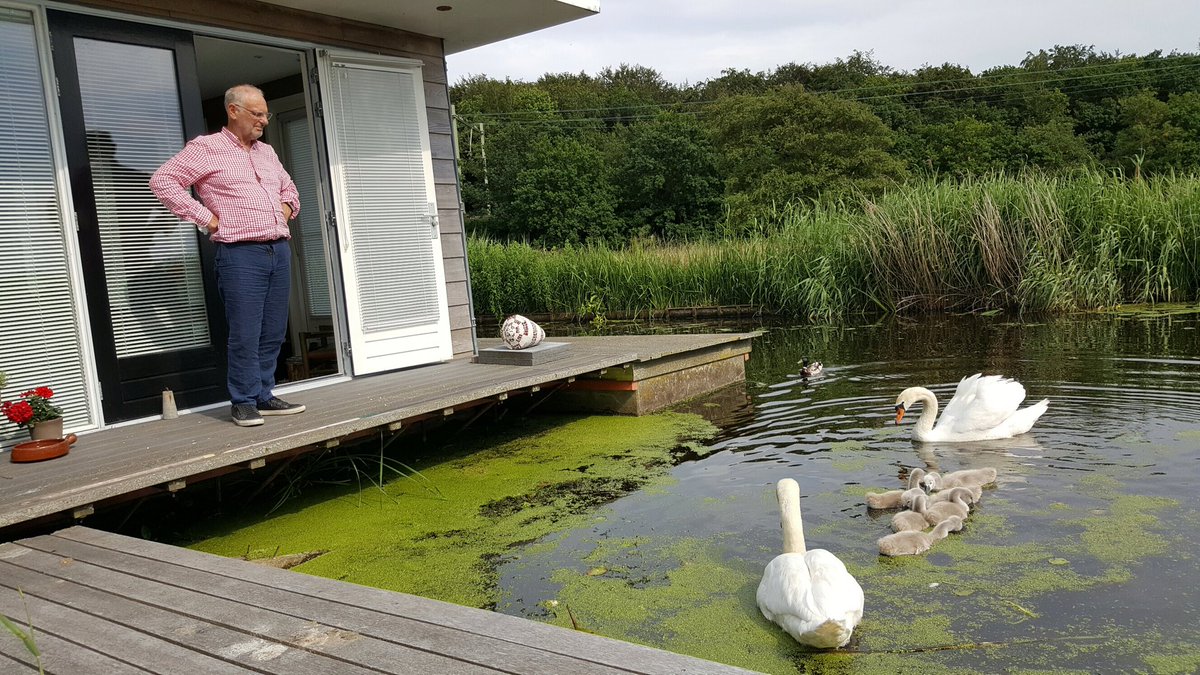
Interview: Philip Nitschke on life in the Netherlands
by Philip Nitschke | 28 Nov 2016 | 11 comments
 Life on a Dutch houseboat
Life on a Dutch houseboat Although he is an Australian, he and his wife recently relocated to the Netherlands where he continues with his work. BioEdge asked him why he moved house and what it means for the organisation he founded, Exit International.
****
BioEdge: Why have you moved to the Netherlands? When did you decide?Philip Nitschke: I moved to the Netherlands with my wife because we needed to publish the Peaceful Pill eHandbook in multiple languages. Being in the midst of the European Union was essential for that. The need to leave home also became increasingly evident because of the failure in Australia to see the question of end of life choice depicted in anything other than the “medical model” ie, as a medically mediated option for the dying, rather that the “rights” model that I see as the more ethically consistent approach.
Do you still call Australia home, or are you too angry with the law and the medical establishment to return?
Nitschke: Yes, Darwin will always be my home.
Life on a houseboat in a Dutch canal sounds rather picturesque -- but a bit chillier than Darwin. Do you plan to settle down, learn the language, and so on?
Nitschke: Yes, very picturesque, and we have settled down, the dog is here, too, so it’s all the family. Office and new laboratory opens this week. We have enrolled in our first language course in January. (They don’t call it “double Dutch” for nothing!)
How are you contributing to the local euthanasia debate in the Netherlands? Your idea of rational suicide is quite similar to Dutch proposals for “completed lives”, isn’t it?
Nitschke: It is refreshing to see the “rational suicide” or “civil rights” model under active discussion and consideration in Europe. The proposed “completed life” model sits very well with my views.
How do the locals like the idea of the "peaceful pill"? Is it similar to the Drion's Pill which has provoked a lot of discussion in the Netherlands?
Nitschke: My concept of a “Peaceful Pill” flowed directly from my discussions about this with [Huib] Drion* when I met with him in the Hague some 10 years ago. The idea has broad acceptance and fits well with the Dutch idea of “completed life”. It is an area of active research by Exit, from Drion’s two-stage pill to the concept of unique individual pill coding.
I see that you are giving a talk at an NVVE** conference in December. What’s all that about?
Nitschke: I will be talking on the political and ideological schism between those who believe in the “medical model” and civil rights models of end-of-life choice and the implications of this globally. Of critical importance is access to the most current information, to good quality euthanasia drugs, and testing facilities.
And how is Exit International functioning now that you have left Australia? I see that you have offices in the Netherlands and Switzerland.
Nitschke: Exit in Australia and NZ is functioning well. We have a great staff and volunteer team, some very talented and committed people. Regular visits home allow me to be active in multiple countries. Exit is now much bigger than me personally.
* Huib Drion (1917-2004) was a Dutch jurist who became famous for proposing a freely available suicide pill for people over 70.
** The Dutch Right to Die Association

BioEdge

California’s assisted suicide law came into effect on June 9. Betsy Davis, an artist with ALS, also known as Lou Gehrig’s disease, was one of the first to take advantage of the legislation. She drank a lethal cocktail on July 23, after a long party with close friends. I’m afraid that we missed the story at the time.
Reading her sister’s account of Betsy’s death, which is full of loving sorrow at her passing, I was struck by how quickly Californians started to ignore all the careful safeguards. It is clearly specified in the law that the person must “self-administer” the drug. But she was too weak to hold the cup and drink it quickly, so her friends held it for her. They may have broken the law.
People tend to think that a lethal barbiturate brings about death quickly. This wasn’t true in Betsy’s case – she lingered on for four hours. Given that the drug was a homemade cocktail of morphine, pentobarbital and chloral hydrate which smelled like paint, her friends were “lucky” that it worked. Some assisted suicide patients in Oregon have woken up to discover that their suicide has failed.
It wasn’t a good beginning for the law.

Michael Cook
Editor
BioEdge
| This week in BioEdge | |
by Michael Cook | Dec 03, 2016
He seems to have retreated from earlier enthusiasm for waterboarding
by Michael Cook | Dec 03, 2016
He will probably be in charge of dismantling Obamacare
by Michael Cook | Dec 03, 2016
Online survey purports to show that most support it
by Michael Cook | Dec 03, 2016
A policy of cremation or burial has become a major political and ethical dispute
by Michael Cook | Dec 03, 2016
Not as straightforward as scientists have painted it
by Michael Cook | Dec 03, 2016
It is not as simple as it seems
by Michael Cook | Dec 03, 2016
Stretching the law is already happening in California
by Philip Nitschke | Nov 28, 2016
Dutch views on "completed life" sync with his notion of rational suicide
BioEdge
Suite 12A, Level 2 | 5 George St | North Strathfield NSW 2137 | Australia
Phone: +61 2 8005 8605
Mobile: 0422-691-615
Email: michael@bioedge.org
New Media Foundation | Level 2, 5 George St | North Strathfield NSW 2137 | AUSTRALIA | +61 2 8005 8605





















.png)









No hay comentarios:
Publicar un comentario